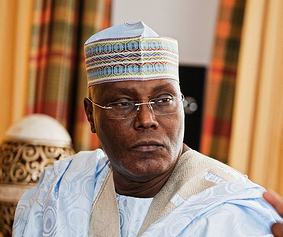
The perception of a country is important for the wellbeing of its citizens locally and internationally. It also has a direct correlation on the flow of Foreign Direct Investment (FDI) to the country. If a country has a warped image on the global stage, it won’t attract much FDI and its citizens would be treated with disdain by other countries. This is one of the reasons the foreign affairs portfolio is often manned by people with considerable intellectual gravitas, who can stand shoulder-to-shoulder with their peers on the global stage.
Hence, when Lai Mohammed cautioned the US Consulate about granting a visiting Visa to former Vice President Atiku Abubakar and presidential candidate of the opposition Peoples Democratic Party, it was considered a diplomatic faux pas among foreign policy analysts. Lai Mohammed hinged his suggestion on the notion that granting a Visa to Atiku would amount to, symbolically, supporting Atiku in the 2019 Presidential election. “We understand and appreciate the fact that it is the prerogative of the US to grant a visa to anyone who applies,” Lai Mohammed, the minister of Information was quoted in the local media. “However, we want the US to be neutral and be wary of taking any decision that will give the impression that they are favouring or endorsing one candidate over the other.” Even if there were efforts by the Muhammadu Buhari-led government to torpedo Atiku from getting a US Visa, it would have been subterranean without much public fanfare but I understand this would amount to disregarding Lai’s talent in political brinkmanship. For Lai Mohammed, everything is considered a tool for propaganda, even if it would make a mockery of Nigeria among the comity of nations.
Atiku Abubakar is not just an ordinary Nigeria; he is the former Vice President of the Federal Republic of Nigeria, who is entitled to a Diplomatic passport. If the Nigerian government could be so careless to demean Atiku because of a political contest, you would wonder how foreign countries would perceive ordinary Nigerians. Playing politics with Atiku’s US Visa application is not good for the image of Nigeria and this has import on the way Nigerians are treated in foreign countries and on Foreign Direct Investment to the country. For instance, the United Nations Conference on Trade and Development (UNCTAD) 2018 World Investment report noted that FDI to Nigeria fell by 21 percent in 2017 to $3.5 billion. It is rational to ask if there are legitimate basis for the Nigerian government to ask the US Consulate to deny Atiku an entry Visa to the US. Has Atiku been indicted by any court of competent jurisdiction in Nigeria? Stereotyping Atiku as a corrupt person amounts to saying that Lai Mohammed is a liar because his first name rhymes with a Lie. These are mere political pontifications without substance.
The implication of suggesting to the US Embassy to deny Atiku Visa to Atiku resonates beyond Atiku. While Atiku may be the short term target, ordinary Nigerians will suffer the consequences in the long term. You can only understand the import of Lai Mohammed’s diplomatic blunder if you have lived outside Nigeria for a few years. The way Nigerians are treated in many foreign countries is a function of the manner our government has treated Nigerian citizens and the effects spiral across many international airports and immigration borders, where Nigerians are hounded and humiliated for carrying the green passport. Even countries that could be considered subaltern also treat Nigerians with disdain.
On the other hand, why is it the role of the Nigerian government to suggest to the US Embassy who to grant visa or not? Second, if Lai Mohammed was urging the US to show neutrality in the 2019 Presidential Nigerian elections, why is the Nigerian government interfering in the internal affairs of the United States of America? It amounts to double standards for the Nigerian government to ask for neutrality on the one hand and on the other; it is being impartial by dictating to a sovereign country how to run its affairs. Country missions are autonomous and do not take directives from the local government on whom to issue Visa; it operates on the basis of reciprocity. The foreign policy of a particular government is guided by self-interest. Hence, it is the prerogative of the US government to grant Visa to whomever it deems fit if it is in line with its self-interest. If the US Embassy heeds the suggestion of Lai Mohammed to not issue visa to Atiku, it would amount to some form of interference in the internal affairs of a sovereign country by the Nigerian government.
The truth is that for now, it would seem to be favourable to Lai Mohammed to play politics with Atku’s US Visa application but the effects of this action will continue to haunt ordinary Nigerians, many who live in Diaspora, who do not have any direct link to the local politics in Nigeria. I hope that one day, hopefully, when Lai Mohammed is no more in government, he will face the reality of having to be treated differently in immigration borders for the mere fact that he carries a Nigerian passport.
Umejei, PhD Writes from Johannesburg, South Africa
END

Be the first to comment